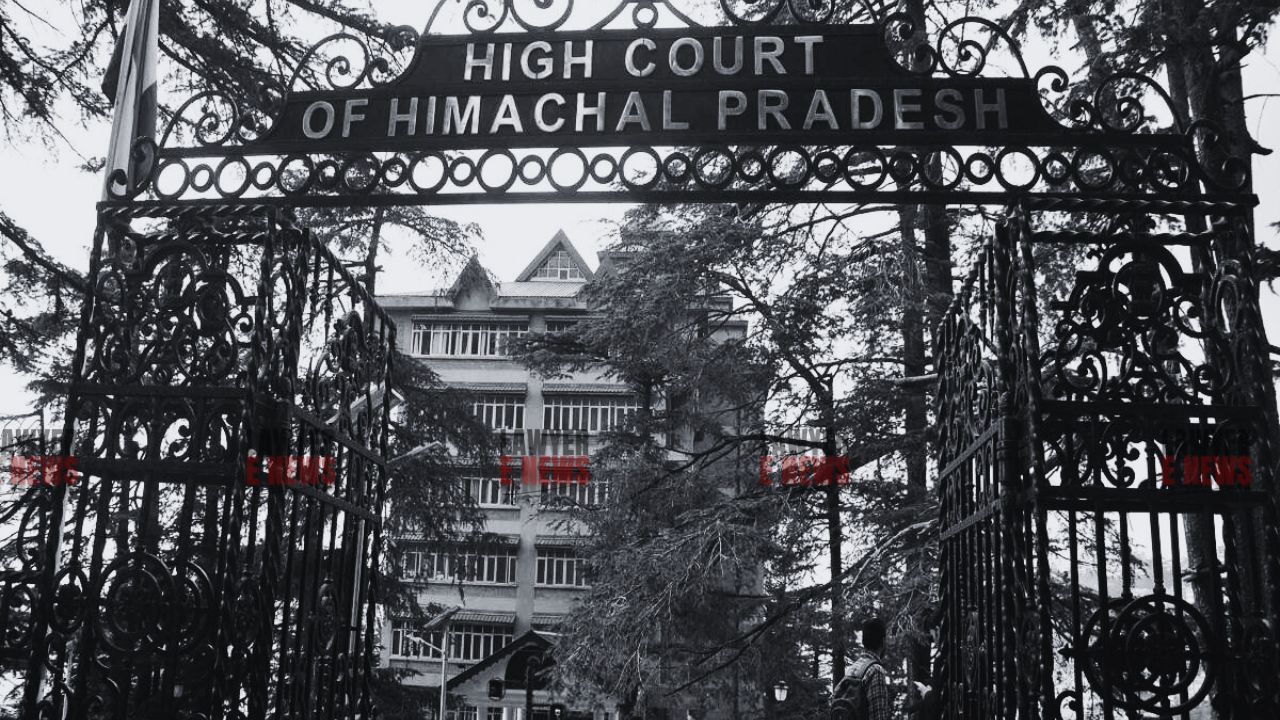-
by Admin
15 February 2026 5:35 AM



In a latest Judgement, High Court of Himachal Pradesh at Shimla in Jugal Kishore v. State of Himachal Pradesh (Cr. Appeal No. 81 of 2020) overturned the conviction of Jugal Kishore under Section 20 of the Narcotic Drugs and Psychotropic Substances Act, 1985 (NDPS Act). The appellant, who was sentenced to ten years of rigorous imprisonment and fined ₹100,000, was acquitted after the court found significant contradictions in the prosecution's evidence and procedural lapses, including the failure to comply with Section 42(2) of the NDPS Act.
On the night of June 6, 2012, a police patrol, led by HC Deva Nand, intercepted Jugal Kishore and another individual, Kamal Kishore, near Nakrod Bazar, Chamba. Upon inquiry, the two individuals failed to provide a satisfactory reason for their presence at that hour. During the search, a black bag carried by Jugal Kishore was found to contain a cream-colored bag, inside which was 1.1 kilograms of charas. The police completed the formalities, sealed the contraband, and registered an FIR. Both men were charged under Section 20 of the NDPS Act.
Initially, the Trial Court acquitted the accused due to insufficient evidence. However, on appeal by the State, the case was remanded, leading to the retrial and subsequent conviction of Jugal Kishore. Aggrieved by this conviction, Jugal Kishore appealed to the High Court, arguing inconsistencies in the prosecution's case and improper procedure followed during the investigation.
The key legal issues revolved around the reliability of the prosecution's evidence and whether the police had adhered to the procedural requirements under the NDPS Act. The defense argued that:
There were major contradictions in the testimonies of police witnesses regarding the preparation and handling of key documents.
The police had prior information regarding the possession of contraband but failed to comply with Section 42(2) of the NDPS Act, which requires documenting and forwarding such information to a superior officer.
The seizure lacked the involvement of independent witnesses, raising doubts about the authenticity of the recovery.
Justice Sushil Kukreja, delivering the judgment, meticulously examined the prosecution's evidence and found multiple inconsistencies:
Contradictory Testimonies: The statements of key witnesses, including PW-1 Constable Som Prakash, PW-2 HC Shaukat Ali, and PW-11 HC Deva Nand, were inconsistent. For instance, there were discrepancies regarding who prepared the seizure memo and the "rukka" (a report sent to register an FIR). PW-2 Shaukat Ali did not mention preparing the seizure memo, contradicting PW-11's statement that Shaukat Ali had done so at his direction. Such contradictions cast doubt on the integrity of the investigation.
Inconsistent Documentation: There were inconsistencies in the dates recorded on the NCB forms and the FSL report. While PW-9 Constable Naresh Chand stated that the case property was deposited at the Forensic Science Laboratory (FSL) on June 8, 2012, the NCB form indicated June 7, 2012, raising doubts about the chain of custody and proper handling of evidence.
Failure to Comply with Section 42(2): Despite the defense’s argument, the court found the consent memo under Section 50 of the NDPS Act to be improperly handled. The memo mentioned only the NDPS Act, indicating either prior knowledge of the contraband or preparation after the recovery of charas. This suggested that the police had prior information about the accused’s possession of narcotics but did not comply with the requirements of Section 42(2), which mandates recording such information in writing and informing a superior officer. Citing the Supreme Court's judgment in Smt. Najmunisha v. State of Gujarat (2024) 4 SCC 411, the High Court emphasized that non-compliance with Section 42 is a significant lapse that vitiates the trial.
Lack of Independent Witnesses: The court also observed the lack of independent witnesses during the seizure, a crucial safeguard under the NDPS Act. This further weakened the prosecution's case.
Doubtful Search and Seizure: Given the discrepancies and the non-compliance with mandatory legal procedures, the court expressed doubt regarding the integrity of the search and seizure operation.
The High Court concluded that the prosecution had failed to establish the guilt of Jugal Kishore beyond reasonable doubt, primarily due to procedural lapses and inconsistencies in the evidence. The judgment and sentence passed by the Special Judge-II, Chamba District, were set aside. The court ordered Jugal Kishore's immediate release and directed the refund of any fine paid. The case highlights the necessity for strict adherence to the procedural safeguards under the NDPS Act, underscoring that any violation can lead to the acquittal of the accused to prevent a miscarriage of justice.
Date of Decision: September 13, 2024
Jugal Kishore v. State of Himachal Pradesh
